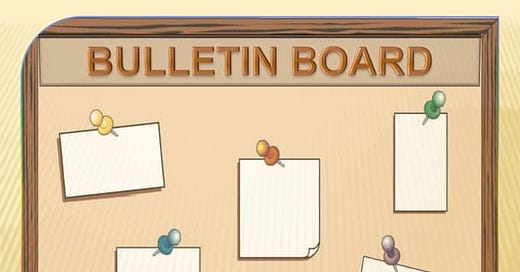Before Substack, Twitter and Facebook, there were blogs. The early years of blogging, also the early years of this century were exciting times to be around. For a while it seemed like ordinary people like me could take on the established mass media. But the legacy media gradually learned to use the Internet more effectively, without accepting basic ideas like linking to sources.
“Social media” represented a bigger blow. Blogs take a fair bit of work, made worse by spammers, bots and trolls. For most people, Facebook, Twitter and the like offered something much easier at the price of personal control. Whereas the work involved in running a blog was unpaid, “social media” could be funded by advertising, with costs that we were slow to appreciate
The rise of subscription newsletters like Substack and Buttondown offers the possibility of a return to the first era of blogging. Paid subscriptions pay enough to justify the work involved, while providing free access to most or all of what is published.
All that is a prelude to a feature which (I claim) I invented in the early days of blogging. As on my 20 year old blog, Monday Message Board will be a regular feature allowing comments on any topic. Civil discussion and no coarse language please.
Read my newsletter




From a regular commenter on the old blog to new Substack readers: welcome to the past!
Substack should be a more congenial platform technically in that it allows subthreads to organise the topics.. WordPress does not, and it gets confusing when several different conversations are going on at once.
A few months ago I examined my credit card statement because my repayments were not decreasing according to my own accounts. I looked at the transactions and I discovered that banks are charging me "rent on money" that comes from the government and separately interest. The two amounts are exactly the same so in effect the 20% interest is really 40% yet the bank advertises it as 20%.
The banks call it compound interest but it should be called double interest and I believe it should stop. If it does then housing becomes more affordable as typically the repayment of a loan will reduce by 30%.
Here is how the banks do it.
Early in each month the bank makes a transaction to increase my loan by the interest amount. You will see it on the statement as Interest.
This extends my loan by the amount but the bank does not record that I have paid my interest. What the bank has failed to do is to give me the interest amount as an extension on my loan and they should record that I have paid my interest. They don't do it and later I pay them an amount they say I owe them which is interest + capital repayment. I have an automatic payment and they take the interest + capital repayment and do not include the interest as a reduction in interest owed. It means I have paid interest twice but I cannot claim the two because the second interest payment does not reduce the capital but pays the interest a second time.
Can someone explain to me why the Reserve Bank and the Taxation Office does not stamp this out as it distorts the economy as loans create twice as much money as the Reserve Bank thinks and Banks pay a lot less tax than they should.
I have started a petition to ask all banks who do this to stop so-called compound interest and use simple interest. https://www.change.org/PayInterestOnce I have asked two banks to do it and they have not agreed but one did offer $500 for me to withdraw the complaint.